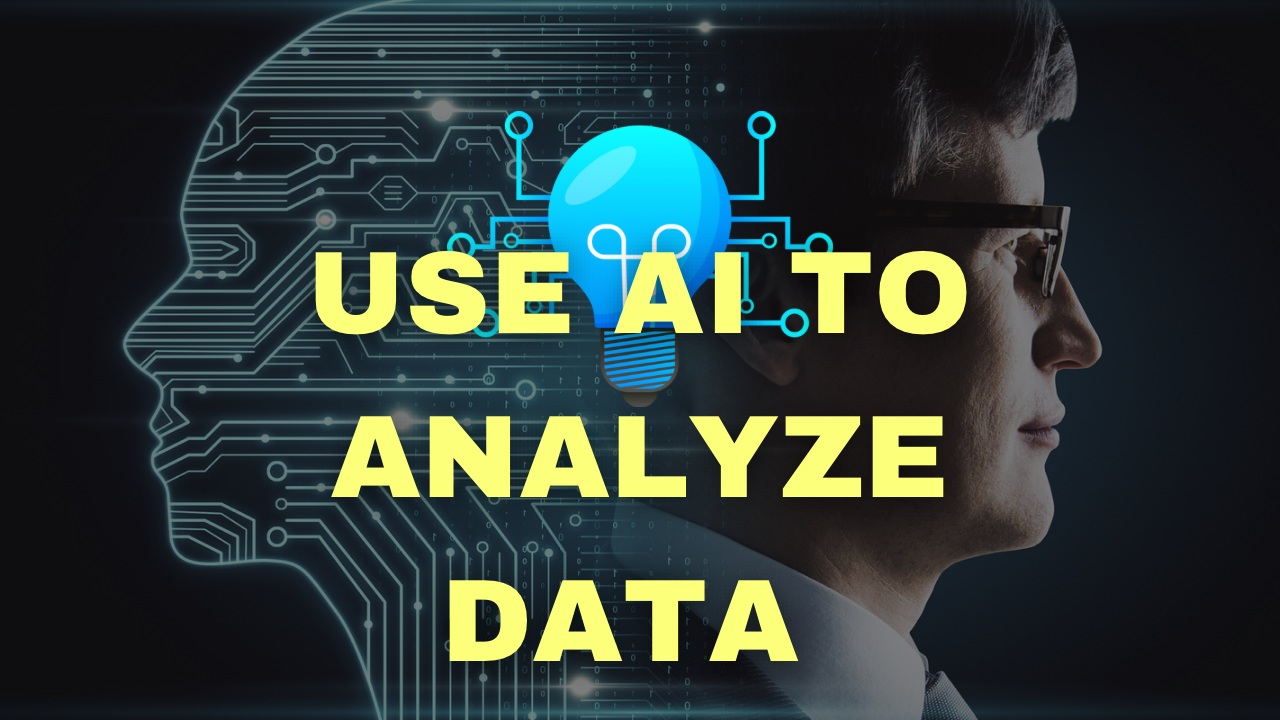Introduction
In today’s digital age, data is abundant, but extracting valuable insights from it can be overwhelming. Fortunately, artificial intelligence has emerged as a transformative tool, revolutionizing the way we analyze and interpret data. By harnessing the power of AI, businesses can uncover hidden patterns, make informed decisions, and gain a competitive edge in their respective industries.

Understanding AI and Data Analysis
Data analysis is the process of inspecting, cleansing, transforming, and modeling data to discover meaningful information, conclusions, and support decision-making. , on the other hand, refers to the simulation of human intelligence in machines programmed to think and learn like humans. When combined, enhances the efficiency and accuracy of data analysis, enabling organizations to extract actionable insights from vast datasets.
The Role of artificial intelligence in Data Analysis
plays a pivotal role in data analysis by automating repetitive tasks, identifying complex patterns, and predicting future trends. Whether it’s analyzing customer behavior, optimizing supply chain operations, or detecting anomalies in financial transactions, powered algorithms excel at processing large volumes of data at unprecedented speed and accuracy.
Harnessing AI for Predictive Analytics
Predictive analytics is a branch of advanced analytics that utilizes historical data, machine learning, and artificial intelligence to forecast future outcomes. By leveraging algorithms, businesses can anticipate market trends, identify potential risks, and make proactive decisions to mitigate challenges and capitalize on opportunities.
Empowering Decision-Making with artificial intelligence Insights
One of the key benefits of using artificial intelligence for data analysis is its ability to generate actionable insights that empower decision-makers. By providing real-time recommendations, identifying emerging patterns, and highlighting critical trends, enables organizations to make data-driven decisions with confidence and precision.
Implementing artificial intelligence -Driven Data Analysis
To harness the full potential of artificial intelligencefor data analysis, organizations must first define their objectives, identify relevant datasets, and select the appropriate artificial intelligence tools and techniques. Whether it’s machine learning algorithms, natural language processing, or deep learning models, choosing the right artificial intelligence technologies is essential for achieving desired outcomes.
Maximizing Efficiency and Accuracy
artificial intelligence-driven data analysis offers unparalleled efficiency and accuracy compared to traditional methods. By automating manual tasks, minimizing human error, and processing data at scale, enables organizations to streamline operations, reduce costs, and drive innovation across all aspects of their business.
Ensuring Data Privacy and Security
While artificial intelligence offers tremendous benefits for data analysis, it’s essential to prioritize data privacy and security. Organizations must implement robust security measures, adhere to regulatory compliance standards, and adopt ethical practices to safeguard sensitive information and maintain customer trust.
Unlocking Innovation and Growth
By embracing artificial intelligence-powered data analysis, businesses can unlock new opportunities for innovation and growth. From personalized customer experiences to predictive maintenance in manufacturing, enables organizations to stay ahead of the curve, drive continuous improvement, and thrive in today’s dynamic marketplace.
FAQs (Frequently Asked Questions)
How does AI enhance data analysis? artificial intelligence enhances data analysis by automating tasks, identifying patterns, and predicting outcomes with unparalleled speed and accuracy.
Can AI predict future trends? Yes, AI-powered predictive analytics leverages historical data and machine learning algorithms to forecast future trends and outcomes.
Is AI-driven data analysis secure? While artificial intelligenceoffers significant benefits for data analysis, organizations must prioritize data privacy and security to safeguard sensitive information and maintain customer trust.
What are the key benefits of using AI for data analysis? Some key benefits of using artificial intelligence for data analysis include increased efficiency, improved accuracy, empowered decision-making, and enhanced innovation.
How can organizations implement AI-driven data analysis? Organizations can implement AI-driven data analysis by defining objectives, selecting relevant datasets, and leveraging appropriate tools and techniques.
What role does AI play in predictive analytics? AI plays a crucial role in predictive analytics by analyzing historical data, identifying patterns, and forecasting future outcomes with precision.
Conclusion
In conclusion, AI is revolutionizing the field of data analysis, empowering organizations to extract valuable insights, make informed decisions, and drive innovation. By harnessing the power of , businesses can unlock new opportunities, optimize operations, and stay ahead of the competition in today’s data-driven world.
Also Visit this site: elitetechnoo.in










